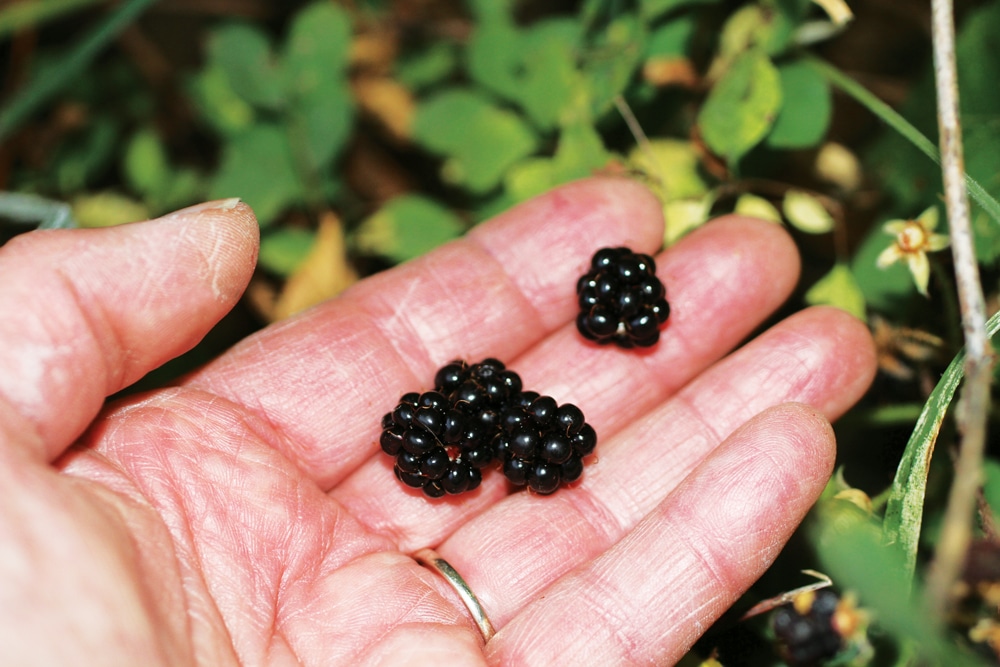In northern climates like the Pacific Northwest, a little forest jewel is ripening – wild mountain blackberries.
For RVers who are traveling to Oregon, Washington, British Columbia, or the Yukon and love to forage, wild mountain blackberries are a treat worth seeking out.
Most of us are familiar with blackberries, those pesky thorny bushes that take over empty lots and untended backyards. These are evergreen blackberries (Rubus laciniatus), transplants from Europe that have naturalized in the U.S. to become an invasive noxious weed. While these common blackberries are tasty, people who love the smaller wild mountain blackberry often complain that evergreens are watery and lackluster in flavor.
 True wild mountain blackberries (Rubus ursinus) have a tangy, sweet-tartness with a deep berry flavor. Wild mountain blackberries are to evergreen or cultivated blackberries what farmed blueberries are to wild huckleberries. Renowned chef James Beard considered wild mountains the most prized of all the wild berries.
True wild mountain blackberries (Rubus ursinus) have a tangy, sweet-tartness with a deep berry flavor. Wild mountain blackberries are to evergreen or cultivated blackberries what farmed blueberries are to wild huckleberries. Renowned chef James Beard considered wild mountains the most prized of all the wild berries.
Wild mountain blackberries grow on trailing vines along the ground. Evergreen berries grow to be the size of a thumb; wild mountain berries are only as big as the tip of a little finger. It takes a lot of these little berries to make a pie or a batch of jam, and they’re tough to pick. Imagine bending over picking these tiny fruits for hours at a time. And these black jewels are only available for two or three weeks – here today, gone in the blink of an eye.
To be a successful wild mountain blackberry forager you’ll need a bucket and a pickin’ stick. My mother-in-law, who was famous for her wild mountain blackberry pies, used an old Folgers coffee can her husband fashioned with a wire bail for a handle. A 3- to 4-foot-long stick helps push back the thorny vines to get at ripe berries underneath.
So how do you find these little gems? Wild mountain blackberries like sun and they’re opportunistic. They’re some of the earliest plants to come up after a forested area has been logged. Look for clear cuts or along roadways where there’s plenty of sun. And don’t miss along streams. Wild mountain blackberries that get plenty of water can be twice the size. Look for long trails of snaking vines and small berries with deep black color. Wild mountain blackberries are naturally less sweet so avoid the berries that are still red. They’re pucker-sour.
What’s your favorite foraged food? Let Bobbie know by sending an email to [email protected] with “Road Foodie” in the subject line.
Clueless in Montreal: In my June column, “Take a Bite Out of Montreal,” I incorrectly stated that Montreal is the capital of Quebec. A reader kindly let me know that Quebec City is the capital. I’ll be visiting this beautiful city soon and will bring you back a taste here.




